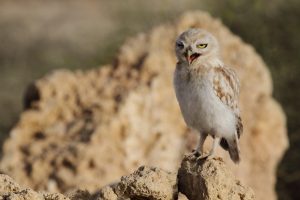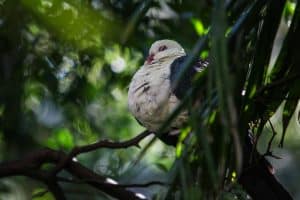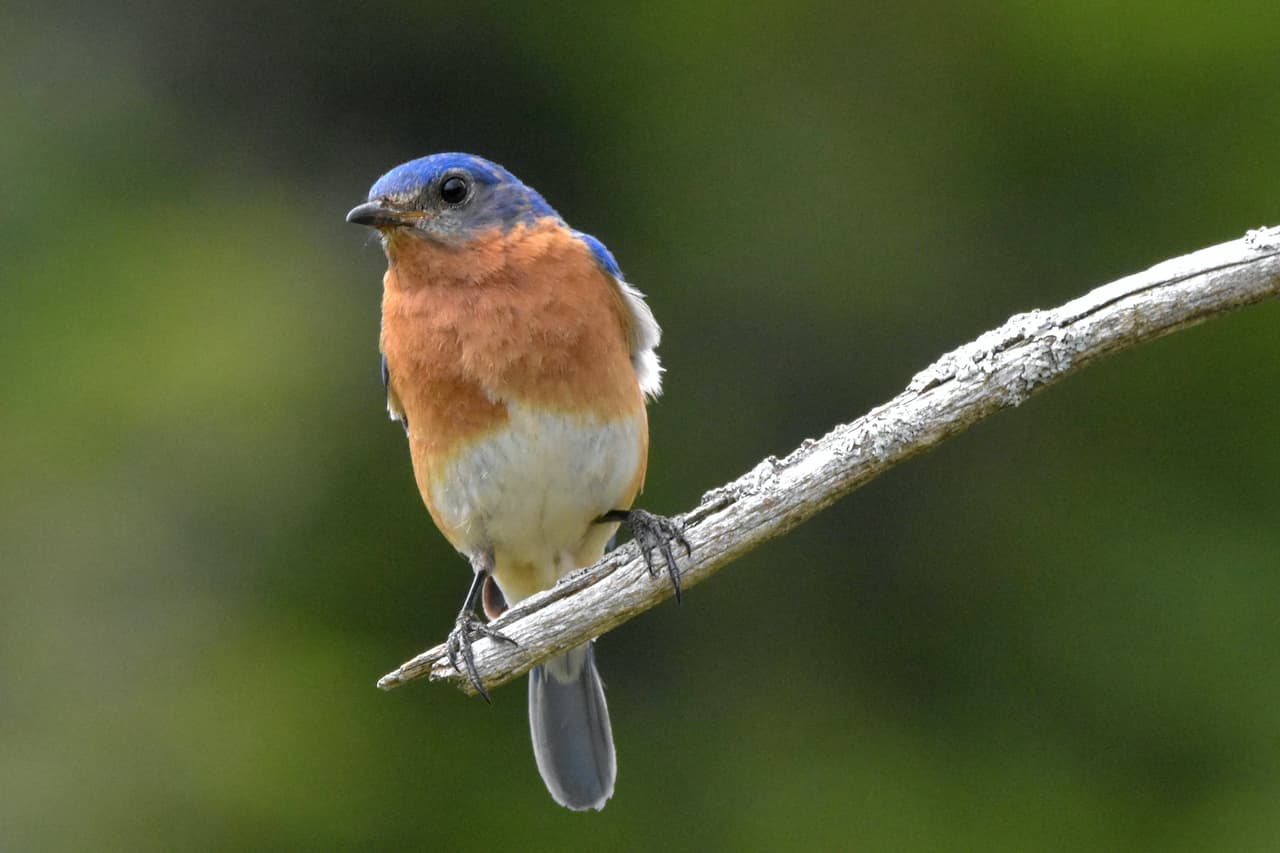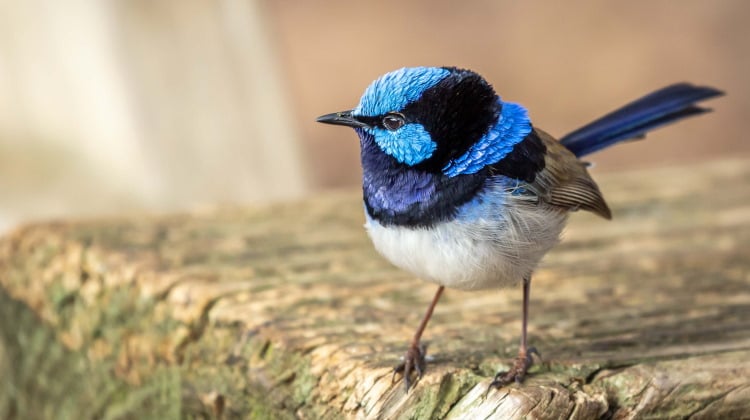What Time Do Birds Wake Up In The Morning?
Birds are often heard chirping and singing in the early mornings. There is a lot of variation in the waking hours between different species.
So what time do birds wake up?
Some birds will rise before dawn, while others may not get up until the midday hour or later.
What time does the bird really awaken?
Answers vary depending on location, season and even bird behavior.
This article will examine these factors and why birds of different species have different waking hours.
Why is it important to understand when birds wake up?
Understanding the time that birds awaken is crucial to understanding their behavior, habits and their relationship with their environment.
Knowing what time a species awakens can help us to determine other activities that they might be engaged in during the day. For example, foraging for food and nesting.
This information will help us to protect the habitats of birds by ensuring that the resources are available at the right time.
It is also important to understand bird waking hours when making land-use decisions around areas with large concentrations of certain birds, such as nature reserves and airports. This will help minimize human disturbances during the key times of the day.
Factors that influence birds waking up
1) Seasonal changes
It’s interesting to note that the seasons have an effect on the time at which birds awaken. Some people have complained about dawn choruses occurring earlier in the morning during the summer or spring seasons. It could be due to temperature changes and sunrise timings in the area.
In the warmer seasons, the birds will start their dawn chorus earlier, while in the cooler seasons they will do so later.
2) Light Pollution
Scientists and experts conducted experiments to see how different lighting conditions affect European birds’ wake-up time and dawn choruses.
They found that the light pollution caused by street lamps in urban areas has brought about a start in dawn singing of birds as early as , almost 30 minutes before their normal wake-up time!
Experts have found that by experimenting, the intensity of light near the birds can also bring their wake-up timing to a earlier timing.
3) Variations among Species
Birds generally wake up at dawn or before sunrise. However, there are many different times of the day for different species. Here are a few examples:
Red-eyed vireos, which are common in the US and Canada, start their dawn chorus later than other birds. Chaffinches, song thrushes, Great Tits, and Song Thrushes start their morning chorus in Europe at least 60 minutes before dawn. Robins and blackbirds begin at least 80 minutes before dawn.
Why do birds get up so early?
Birds awaken early in the morning due to a number of factors, including their physical and behavioral requirements.
Many birds depend on daylight for a number of reasons. For example, it allows them to more easily locate prey, and to nest and do other activities without fear of predators.
Some bird species have also adapted to the cooler temperatures of mornings.
It can be advantageous as the rising temperatures can cause stress and deplete energy reserves that would be used to migrate or for other daily activities.
Birds are also woken up by sunrise because they are sensitive to light intensity changes. Dawn signals that they should start their day, as they know predators may still be asleep at that time.
During winter, when there are fewer daylight hours and fewer opportunities for feeding, birds need to be active before sunset so that they do not starve or lose energy.
Some studies have suggested that the’song’during morning twilight could also be a factor in birds waking up early. Many species of birds sing to attract a partner and establish their territories. This activity usually occurs around sunrise.
Even though birds may appear to be overly enthusiastic in their morning song, it’s actually for a very important reason!
There are many reasons for birds to wake up early in the morning. They may do so because they want to take advantage of cooler temperatures, or establish territories, or find food.
Understanding these factors will help us to better understand the behaviors and habits of different species of birds, as well their relationship with their environment.
It is also useful to know when certain birds wake up in order to make decisions regarding land use near areas with large concentrations of certain birds.
Understanding when and why birds awaken is essential for conservation, and to better appreciate their behavior.
We can ensure that our bird populations remain healthy by taking the time to educate ourselves about these factors.
What are the benefits of being aware when birds awaken?
It is important to be able monitor when birds awaken for many reasons.
This information will help us to better understand bird behavior, habits and their relationship with their environment.
You can also use it to decide how to manage land around certain areas, like airports and nature preserves, where birds are in high concentrations or live in large numbers, to reduce human disturbance at key times of the day.
Knowing when a species awakens can also help us to determine other activities that they might be engaged in during the day. For example, foraging for food, or nesting.
This knowledge can ultimately help us protect bird habitats by providing the necessary resources at the right times and ensure that our bird populations remain healthy and thriving.
Knowing when birds awaken can be a good indicator of climate change and environmental health.
If, for example, certain bird species wake up earlier than normal due to increasing temperatures, it may be a sign that their environment is changing and they could be more vulnerable to other effects such as habitat loss or decreased food availability.
Monitoring when birds awaken can give us critical insights into our changing climate and the ecosystem.
What is the first bird to awaken?
The Common Poorwill is the first bird to awaken, and it can start its morning activity an hour or more before sunrise.
Also, warblers, flycatchers and sparrows are early risers. Hummingbirds also start their mornings early, usually around 30 minutes before daylight.
Other birds, such as owls or hawks that are active at night may not sleep till after sunrise.
There are many species of birds that can be considered early risers, and this depends on both the time of the year and the surrounding environment.
What time does a bird sleep and wake?
The species will determine the exact time that birds sleep and awaken.
Most bird species are active an hour or so before sunrise, and they remain active all day long until sunset.
Some species have different sleeping habits, such as owls that are active all night long. Other birds, like hummingbirds, will begin their day earlier to take advantage cooler temperatures.
Understanding these patterns will help us to better understand the habits and behavior of different bird species, as well as how they relate to their environment.
What is the impact of bird waking time on conservation efforts?
Conservation efforts can be affected by the time that birds awaken.
We can learn more about the behaviors and habits of different bird species by monitoring their activity.
It is possible to use this information to make informed land-use decisions around areas with large concentrations of birds or specific types of bird, such as nature reserves or airports, to minimize human disturbances during the key periods of their day.
Knowing when certain species of birds wake up allows us to determine other activities that they might be engaged in during the day. For example, foraging for food, or nesting. This can ultimately protect bird habitats, by ensuring the availability of resources at the appropriate times, and ensuring our bird populations remain healthy and thriving.
Knowing when birds awaken can be a good indicator of climate change and environmental health.
Monitoring when birds awaken can give us critical insights into our changing climate and the ecosystem.
What is the sleeping schedule of a bird?
The sleeping patterns of birds can differ depending on their species and environment.
Most bird species are active an hour or so before sunrise, and they remain active all day long until sunset.
Some species have a different sleeping pattern, such as owls that are active all night long. Other birds like hummingbirds start their day earlier to take advantage cooler temperatures.
Understanding these patterns will help us to better understand the habits and behavior of different bird species, as well as how they relate to their environment.
Knowing when certain species of birds wake up will also help us to determine other activities that they might be involved in during the day. For example, foraging for food, or nesting. This information can be used to make informed land-use decisions around areas with large concentrations of certain bird species, such as nature reserves or airports, to minimize human disruption during important parts of the day. Monitoring when birds awaken can give us critical insights into our changing climate and the ecosystem.
You now know when different species of birds awaken and how that affects conservation efforts. Understanding these patterns and behavior will help us to better understand the environment and protect it for future generations.
What Time Do Birds Wake Up Summary
You are welcome! This article should have helped you better understand the impact of bird waking time on conservation efforts.
Understanding their behavior will help us make better decisions regarding land use to protect habitats and ensure healthy bird populations. By keeping track of the time that different species awaken, we can better understand environmental health and climate changes, ultimately helping us.






